 Sarah Waters' The Night Watch is the third novel I've read by her, and it's as different as the previous two as it can be. While one was a gothic ghost story set in Warwickshire (The Little Stranger), the other was a Victorian thriller (Fingersmith). And then we have this: a book set (mostly in) London during and after World War II.
The book moves chronologically backwards - the opening section starts in 1947, followed by a chunk set in 1944 and finally in 1941. While nothing much happens in the opening section, it does define the state of the main protagonists, and how the years of war have led to their present situation - which isn't exactly joyous.
Sarah Waters' The Night Watch is the third novel I've read by her, and it's as different as the previous two as it can be. While one was a gothic ghost story set in Warwickshire (The Little Stranger), the other was a Victorian thriller (Fingersmith). And then we have this: a book set (mostly in) London during and after World War II.
The book moves chronologically backwards - the opening section starts in 1947, followed by a chunk set in 1944 and finally in 1941. While nothing much happens in the opening section, it does define the state of the main protagonists, and how the years of war have led to their present situation - which isn't exactly joyous.
Maybe it's right after all, what the newspaper prophets say: that one gets paid back in the way one deserves. Maybe we've forfeited our right to happiness, by doing bad things, or by letting bad things happen.
There's Kay, a lonely figure, who is a lesbian and spent the war years being a female ambulance driver, and playing hero. Now, she wanders the streets and goes to the cinema, sometimes just to watch half the movie.
Then we meet Duncan, a young boy who lives with his "Uncle." During the years of war, while most men were being drafted, Duncan was in another kind of hell, which led to his relationship with his family deteriorating further. He now draws comfort from his older sister, Vivian, the only person in the family who still seems to care about him. However, Vivian is fighting her own battles - in a relationship with a married soldier - a secret she harbours closely; Duncan being the only one privy to it. She works with the fourth primary protagonist, Helen, in a matchmaking office, as they try to find the "right" person for whoever enters their office.
Helen, also a lesbian, is in a loving relationship with Julia, a famous author. Yet, her jealousy and paranoia seems go beyond the natural, and one has to wonder as to why...
1944, when the war was at its worse and "blackout" was enforced, the characters real stories come to life, and it's not pretty. Nothing about war is pretty. Kay's work as an ambulance driver sees her recover as many carcasses as people who can actually be helped... maybe even more. She tries to protect those younger and less impressionable, and seems to do the humane thing, as opposed to being a stickler for rules. In the end, she was my favourite character - by far.
We see a horrific botched abortion, by a dentist, and its consequences; discover the houses which are now merely rubble and stone; walk the streets of London with the characters - be it with two women starting an affair, or two other women trying to rescue as many people as they can! Not only do we discover Duncan's past, but, we also witness the meeting of the "glamour girl" Vivian with the soldier, Reggie, in a train lavatory!
Little symbols are scattered through the book - Vivan clutching a gold ring in her hand, and then transferring it to its rightful owner; the most beautiful pair of pyjamas as a birthday present which were never worn; Duncan's job making night lights. The significance of each of these symbols, despite being introduced in the first section, isn't quite apparent immediately. Yet, as you read on, the jigsaw starts coming together and making more sense.
Yet, for everything I liked about this book, I didn't actually love it. Not at all. The lesbianism was overdone, and some of the descriptions was unnecessary. There seemed to be more emphasis on the sexuality of the characters than the actual horror of war, at times. Also, to me (and I might be wrong here), the inclusion of Duncan was simply to have a male perspective as well, but his character, despite being an interesting one, didn't really add much to the story. The authenticity of some of the intertwining stories defied logic (e.g. Reggie-Vivian), and I was left feeling quite confused about Duncan and "Uncle" Horace's relationship.
If you're a Sarah Waters fan, I'd suggest reading it, but, if not, I'd give it a miss. It's nowhere near as good as Fingersmith, so like me, if you are seeking a repeat of that experience, I'd suggest heading in the other direction.
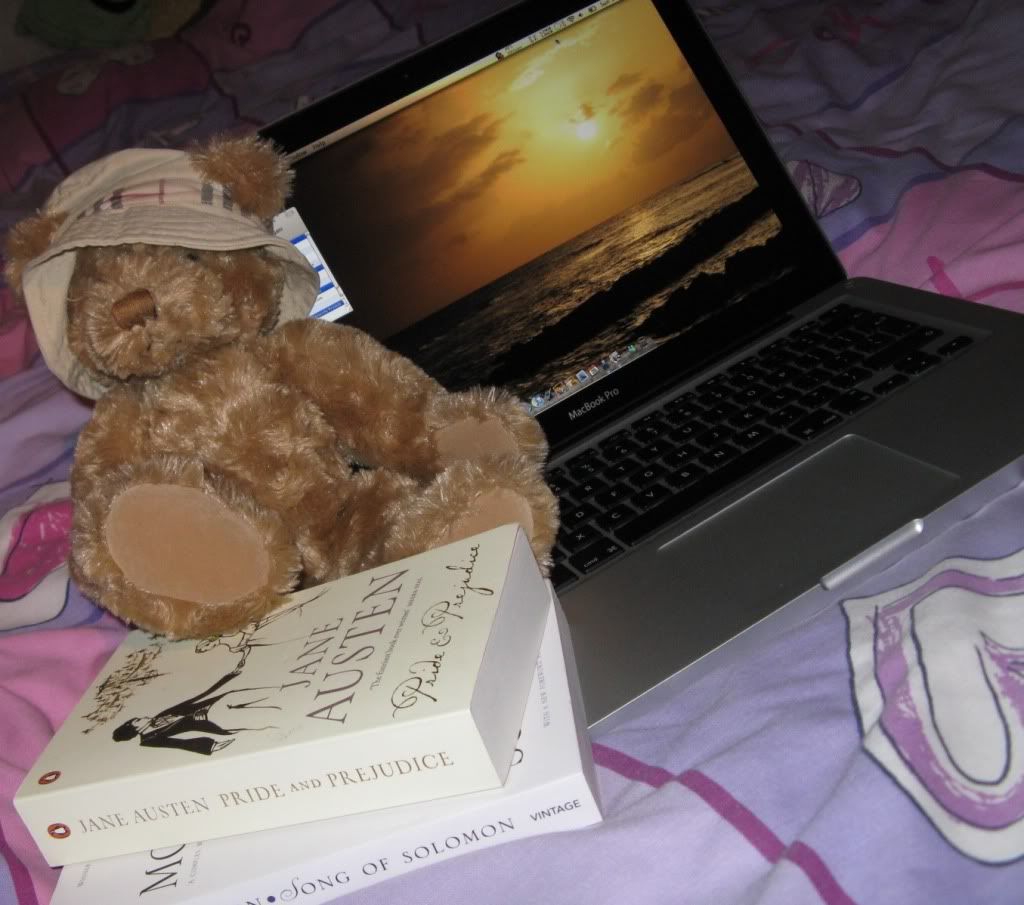
 I discovered the wonderful world of
I discovered the wonderful world of 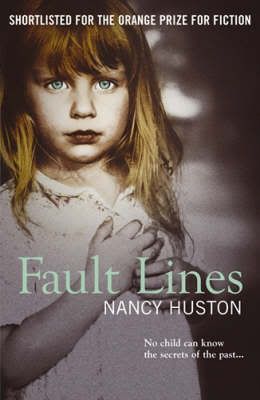 It's the third book I've read this year, where the narrative goes chronologically backwards - the difference being, this time, it follows four generations of six year olds, starting in 2004 and ending in 1944-45.
Sol, a six year old in 2004, believes the world revolves around him, and that he's a genius. Brought up in a pro-Bush environment (Jesus wept), he seems to have a perverse side, as he browses the internet for pictures from the war in Iraq - dead soldiers, raped women, and, there's a reference to the Nick Berg execution as well. This section of the book, to me, highlighted how children today are becoming less innocent and more worldly than back when I was six! Google seems to be playing a massive role in that! To be honest, he almost reminded me of Stewie from Family Guy.
It's the third book I've read this year, where the narrative goes chronologically backwards - the difference being, this time, it follows four generations of six year olds, starting in 2004 and ending in 1944-45.
Sol, a six year old in 2004, believes the world revolves around him, and that he's a genius. Brought up in a pro-Bush environment (Jesus wept), he seems to have a perverse side, as he browses the internet for pictures from the war in Iraq - dead soldiers, raped women, and, there's a reference to the Nick Berg execution as well. This section of the book, to me, highlighted how children today are becoming less innocent and more worldly than back when I was six! Google seems to be playing a massive role in that! To be honest, he almost reminded me of Stewie from Family Guy.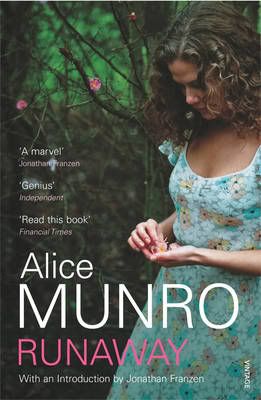 As some of you may already know, I'm
As some of you may already know, I'm  Sometimes, I wonder about myself. Half way through this Fantastic February Female Frivolities (I like alliterations, love double alliterations...), I realised I hadn't picked out a single
Sometimes, I wonder about myself. Half way through this Fantastic February Female Frivolities (I like alliterations, love double alliterations...), I realised I hadn't picked out a single 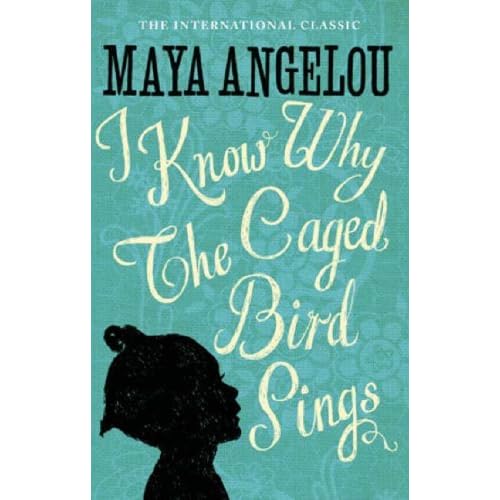 I've wanted to read this book for ages, simply for the title, which is one of the most beautiful titles I've ever come across. So, I finally picked it up, and it's probably one of the most beautiful autobiographies I've ever read. On reading the blurb, I thought it would be similar to the Pulitzer Prize winning The Color Purple. While both books have a prominent thread of racism running through, the similarities end there.
I Know Why The Caged Bird Sings is the coming-of-age story of Maya Angelou, born Marguerite Ann Johnson, set in Stamps (Arkansas), St. Louis and San Francisco. Initially, she lives in Stamps with her brother, Bailey, her grandmother who she calls Momma, and her Uncle Willie. Momma, a no-nonsense unemotional religious Christian, owns the only store around, and is respected and well-liked by all - whites and blacks. While their parents are in California (doing goodness knows what), Momma brings the two children up, with proper morals and values. In fact, when Maya uses the phrase "by the way" passingly, she is admonished for using the Lord's name in vain. And she cannot admit to liking Shakespeare, as he was white.
I've wanted to read this book for ages, simply for the title, which is one of the most beautiful titles I've ever come across. So, I finally picked it up, and it's probably one of the most beautiful autobiographies I've ever read. On reading the blurb, I thought it would be similar to the Pulitzer Prize winning The Color Purple. While both books have a prominent thread of racism running through, the similarities end there.
I Know Why The Caged Bird Sings is the coming-of-age story of Maya Angelou, born Marguerite Ann Johnson, set in Stamps (Arkansas), St. Louis and San Francisco. Initially, she lives in Stamps with her brother, Bailey, her grandmother who she calls Momma, and her Uncle Willie. Momma, a no-nonsense unemotional religious Christian, owns the only store around, and is respected and well-liked by all - whites and blacks. While their parents are in California (doing goodness knows what), Momma brings the two children up, with proper morals and values. In fact, when Maya uses the phrase "by the way" passingly, she is admonished for using the Lord's name in vain. And she cannot admit to liking Shakespeare, as he was white. Sarah Waters' The Night Watch is the third novel I've read by her, and it's as different as the previous two as it can be. While one was a gothic ghost story set in Warwickshire (
Sarah Waters' The Night Watch is the third novel I've read by her, and it's as different as the previous two as it can be. While one was a gothic ghost story set in Warwickshire (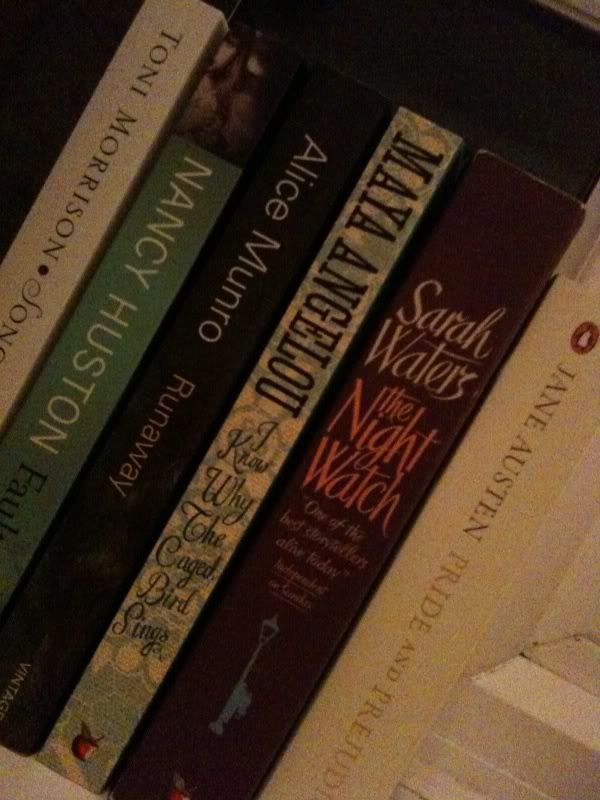

 The Ha-Ha is Jennifer Dawson's first novel, published in 1961. It follows the life of Josephine, a young woman with a mental illness, that often leaves her in hysterics, after she has been removed from Oxford and committed to a mental institution.
The Ha-Ha is Jennifer Dawson's first novel, published in 1961. It follows the life of Josephine, a young woman with a mental illness, that often leaves her in hysterics, after she has been removed from Oxford and committed to a mental institution.